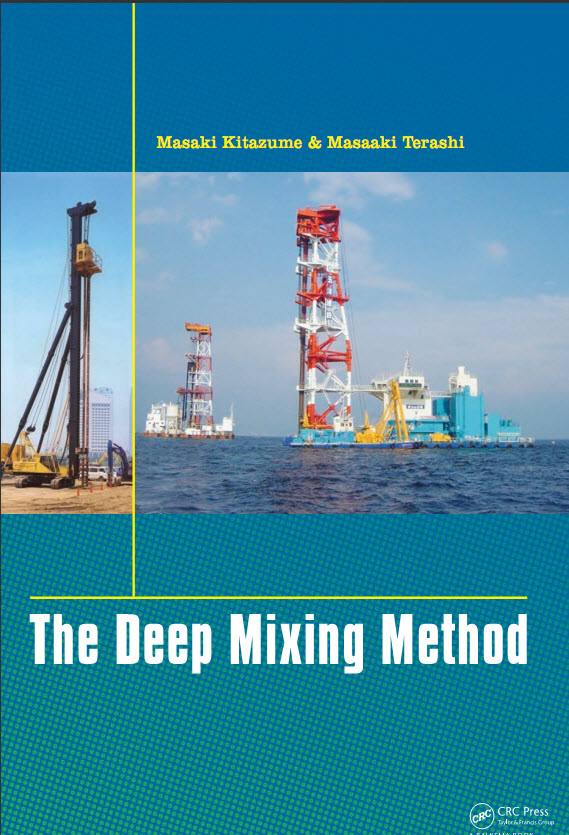The Deep Mixing Method

The Deep Mixing Method (DMM), a deep in-situ soil stabilization technique using cement and/or lime as a stabilizing agent, was developed in Japan and in the Nordic countries independently in the 1970s. Numerous research efforts have been made in these areas investigating properties of treated soil, behavior of DMM improved ground under static and dynamic conditions, design methods, and execution techniques.
Due to its wide applicability and high improvement effect, the method has become increasingly popular in many countries in Europe, Asia and in the USA. In the past three to four decades, traditional mechanical mixing has been improved to meet changing needs. New types of the technology have also been developed in the last 10 years; e.g. the high pressure injection mixing method and the method that combines mechanical mixing and high pressure injection mixing technologies. The design procedures for the DM methods were standardized across several organizations in Japan and revised several times. Information on these rapid developments will benefit those researchers and practitioners who are involved in ground improvement throughout the world.
The book presents the state of the art in Deep Mixing methods, and covers recent technologies, research activities and know-how in machinery, design, construction technology and quality control and assurance.
The Deep Mixing Method is a useful reference tool for engineers and researchers involved in DMM technology everywhere, regardless of local soil conditions and variety in applications.
Due to its wide applicability and high improvement effect, the method has become increasingly popular in many countries in Europe, Asia and in the USA. In the past three to four decades, traditional mechanical mixing has been improved to meet changing needs. New types of the technology have also been developed in the last 10 years; e.g. the high pressure injection mixing method and the method that combines mechanical mixing and high pressure injection mixing technologies. The design procedures for the DM methods were standardized across several organizations in Japan and revised several times. Information on these rapid developments will benefit those researchers and practitioners who are involved in ground improvement throughout the world.
The book presents the state of the art in Deep Mixing methods, and covers recent technologies, research activities and know-how in machinery, design, construction technology and quality control and assurance.
The Deep Mixing Method is a useful reference tool for engineers and researchers involved in DMM technology everywhere, regardless of local soil conditions and variety in applications.